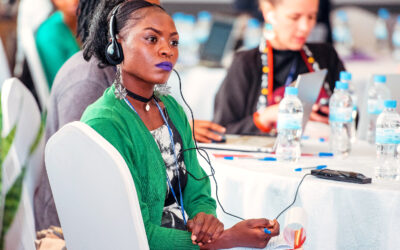All too often, the price of gold includes a human toll. At many mining sites, children are exploited as workers.
A new report by Free the Slaves, Child Rights in Mining, examines the problem of child slavery and child labor at informal gold mines. Investigators uncovered cases of sex slavery involving young girls, which has become common at mining camps. The report also details how an FTS-led pilot project improved community attitudes toward protecting children from harmful work.
The pilot project was “intended to address the lack of awareness and protection of child rights.” The team created educational booklets that covered themes such as parenting, child labor and sexual abuse in mining communities.
The effort produced impressive results:
- Suitable Work: Percentage of participants who could identify suitable work for children rose from 5 percent at baseline to 93 percent at pilot project completion.
- Child Impacts: Percentage of participants who could identify impacts on children of hazardous work rose from 4 percent at baseline to 79 percent at pilot project completion.
- Child Behavior: Percentage of participants who could identify impacts on children hazardous work rose from 4 percent at baseline to 79 percent at pilot project completion.
- Government Assistance: Percentage of participants who had knowledge of government agencies to contact in cases of child exploitation rose from 25 percent at baseline to 61 percent at pilot project completion.
- Child Protection: Percentage of all participants at pilot project completion who had taken appropriate action to protect children: 25 percent. Percentage of participants who are parents who had taken action to protect their own children at pilot project completion: 71 percent.
The evaluators found that as community members began learning more about child rights, they were motivated to take action and learn how to advocate for greater child protection. As a result, communities are now better able to hold government institutions accountable for guaranteeing child rights.
FTS partnered with Participatory Development Associates and the Social Support Foundation on the project. You can learn more about our work in Ghana on the FTS Ghana webpage.



